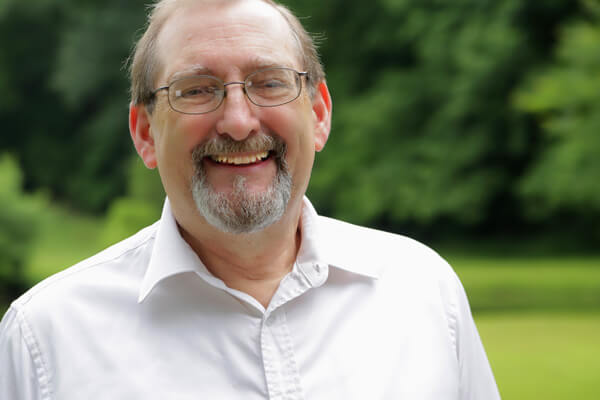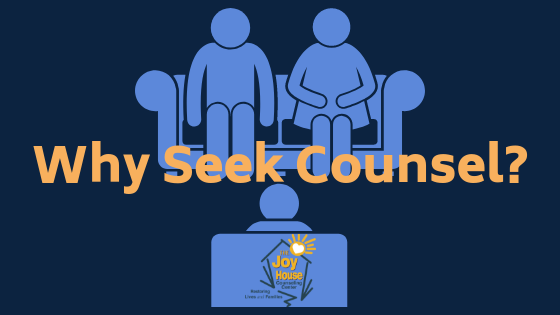 By: Bill Wattenbarger, PhD
By: Bill Wattenbarger, PhD
Why seek counsel? The most common answer: to dispatch our problems by gaining understanding. We think that when life presents a challenge which leaves us confused, uncertain and unhappy, maybe someone else, perhaps with special knowledge, can help us understand what’s wrong or what needs to be done.
The search for wisdom and understanding is age-old and well-advised. Even God’s people are said to perish (behave without restraint) for lack of revelation (understanding/vision/knowledge), Proverbs 29:18. James 1:5 advises, if one lacks wisdom, they should just ask God and he will supply without criticizing, with proper deference to revelation and the keeping of the law. And of course there is always the renewing of the mind in Romans 12:2 with its specific reference to knowing the will of God.
In our world, reason reigns supreme, or so we think. We tend to put a lot of confidence in our ability to understand things and direct our lives by rational means. But humans are more complex than mere reason. We have feelings (emotion). We desire things (motivation). We make choices (will). Truth be known, our choices more commonly derive from our feelings and desires than from good reasons; we typically do what we want or feels good and reasoning is left to rationalize our excuses. How often do we do something, regret it and say, “I knew, or should have known, better?”
The biggest problem with “insight therapy” is that it is mediated by words. We talk. We have words for everything, even things which are not even things. [Playing with words can be fun!] Words mean things but they are not those things; they just point to the actual things.
Just say, “Our problem is that we don’t communicate. We need to talk,” and everyone cringes. Conversation is famously inefficient. First, one thinks something, encodes it into words, and sends the words to another. The other receives and decodes the words, thinks something, encodes it into words and sends it back. The whole transaction requires common meanings for the words and precise reasoning to decipher them. Sometimes we say one thing and mean another. Misunderstanding is inevitable so we talk some more until we think we understand each other. Not even Scripture is immune – so many words, readers and interpreters, so many different meanings. And worse yet, expressing unhappy truths about ourselves is often avoided while finding fault in others is called “honesty.”
So where does all this hidden emotional-motivational-willful content come from? Mostly it takes shape in the first few years of our lives – before we have sufficient language to process our experience. It is all pre-rational. It is a complex process but the result is a disposition, or more properly, a predisposition which triggers and directs our responses to future experiences. [Note: predisposition is not the same thing as personality which is largely inherited, intrinsic to our creation.] Over time, we give familiar labels (words) to this problematic content like afraid, depressed, rejected, ashamed, worthless, angry, co-dependent, guilty, anxious, suspicious, insecure, obsessed, etc. Often, it is one’s predisposition, more than one’s ignorance, which is the source of counseling problems.
In Christian counseling, a dysfunctional predisposition manifests a misshapen spirit. To deal with problems in the phantom regions of disposition requires a new experience, a new birth and a transformation of our spirits. It is precisely this which Jesus Christ and the indwelling Holy Spirit bring. Information, insight and reason are not enough. We did not acquire our current disposition toward life through reason and understanding. Love, acceptance, and worth must be experienced to iron out our spiritual wrinkles.
These are the words but the reality is incomprehensible. So when you come for counsel, don’t expect knowledge, understanding and wisdom to do the job alone. Come prepared to be remade. Come to experience God, self and others in a new way, a way that rewrites that pesky predisposition.
Bill Wattenbarger joined the Joy House team in May of 2015 to work in the Counseling Center. He provides biblical, Christian and pastoral counseling services to those who are hurting, confused or overwhelmed. He earned a Master’s Degree from the University of Florida and a Doctoral degree in Counseling from the University of Georgia. The Joy House Counseling Center exists for the purpose of providing a faith-based option for residents of the Highway 575/ 515 corridor who seek guidance with life’s problems. We have locations in Pickens, Gilmer and Cherokee Counties with fees based on income and ability to pay. We offer counseling to all ages, from 7 to 70, with professional services to a wide variety of individuals, families and their needs. Contact our Counseling Center via phone at 678-452-2037 for more information.

